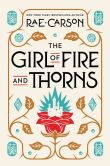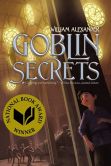I’m writing this in part so that I can try to sort out for myself what happened, or at least as much as is known.
January 14: Chi-Fi, a new Chicago-area convention, announces the cancellation of their 2014 event. From that announcement, made by con chair James Dobbs:
“A senior Westin employee referred to our staff, attendees, and guests as “freaks,” and hotel staff expressed their disapproval of our anti-harassment policy … By mutual decision, we agreed to part ways with the hotel. We wish to make clear that these views were expressed by staff of the Westin Chicago River North and do not reflect the opinions of the Westin brand or Starwood Hotels.”
Dobbs provides what he remembers of the hotel manager’s “freaks” quote in another article, saying, “My recollection is that she actually said that ‘Costumed freaks are not in keeping with the reputation’ [of the hotel].”
The hotel posts a brief statement about the cancellation on their Facebook page, expressing disappointment about the “false claims” being spread by Chi-Fi.
“Our team worked diligently to accommodate this group booking, and we never objected to the organization, its attendees or the anti-harassment policy. After much discussion, Chi-Fi Con asked to be allowed out of their contract when it became clear that mutual needs could not be met, and we agreed.”
January 15: Chicago-area fan Michi Trota writes a reaction post, including links to the anger spreading through certain circles of SF/F social media. The story was also picked up by several media outlets, including My Fox Chicago, which interviewed both Dobbs and Trota.
January 16: Anne Elliot, Chi-Fi convention vice-chair, comments on a Skepchick blog post about hotel concerns over the convention’s harassment policy.
“I was present in the meeting with hotel senior staff who expressed concern over our No Harassment Policy. The hotel staff seemed to believe that the fact that we had a policy was an indication that there was something wrong with our attendees and/or guests … This was only one more piece of evidence that led us to believe that the culture of this hotel was not a good fit for our event.”
January 18: Steve Davidson posts an article at Amazing Stories called Pushing Fannish Buttons: Chi Fi vs The Westin River North Hotel of Chicago that notes a lack of “solid, verifiable information” and describes the fallout as, “what is perhaps the greatest demonstration of Geek Power in the history of fandom.” Davidson has done a lot of work on this article, and there’s much more than I can summarize, so I recommend reading the whole thing. Davidson presents two possible narratives:
“The Chi-Fi narrative lays the blame squarely on the hotel for non-cooperation, disparagement of the fan community and the questioning of their anti-harassment policy.
“The other, less vocal narrative comes as speculation on the part of experienced con-runners and it suggests that the real story is that Chi-Fi’s attendance and hotel booking numbers were well below what was needed to float a successful convention.”
Davidson provides documentation from M. Menozzi, the Account Director for the Westin Hotel, which states in part that:
“…it was not about any claimed disparagement, which didn’t happen, or about their anti-harassment policy, which we never objected to in any way only asked whether there was history of problems that necessitated it. It was about economics and a straightforward contract issue. With a short time until the event, very few guest rooms had been booked and we do not allow any group to use the suites as party rooms.”
In response to the low booking, James Dobbs notes that “We began telling everyone to hold of on booking hotel rooms” in response to various difficulties and miscommunications with the hotel.
January 20: Michi Trota writes a follow-up post, Further Thoughts on Chi-Fi Con, Transparency, and Con Culture. She acknowledges that inexperience and low booking numbers may have been a factor, but questions why this needs to be an “either/or” situation.
“It’s entirely possible Chi-Fi Con bit off more than they could chew and the hotel, seeing the lower than expected numbers, decided it would be beneficial to release the con from their contract in order to open up the venue for another event. None of this means that a negative attitude from the hotel toward the con wasn’t a problem that factored into the decision.”
John Scalzi notes that while he doesn’t “know about the details of the Chi-Fi ruckus,” he does have a general comment about harassment policies.
“A harassment policy should not be used as a shield to deflect attention or legitimate questions with regard to the organization of a convention. Aside from any other problematic issue with such a maneuver, doing so has the potential to make it harder for other conventions who wish to implement harassment policies to do so, or for other conventions to work with hotels at all…”
#
To summarize, what I’m seeing is…
- James Dobbs claims the hotel staff referred to convention staff and attendees as “freaks.” The hotel denies this.
- Dobbs claims the hotel disapproved of the con’s harassment policy. Anne Elliot also witnessed this, saying the staff seemed to think the policy suggested there was something wrong with the con and attendees. The hotel denies this.
- M. Menozzi claims the contract was ended because of low booking numbers and the hotel’s policy against letting suites be used as party rooms. Dobbs says the numbers may indeed have been low, but that this was due at least in part to miscommunications and other difficulties with the hotel.
What really happened? Which claims are true and which aren’t? I don’t know. I’m not aware of anyone who does, aside from the people who were there. What I am seeing is people trying to push for one interpretation or another.
Davidson concludes that claims about the hotel’s derogatory comments and concerns over the harassment policy seem to have been “designed to obscure … the more likely scenario” that the con was simply unable to meet their obligations, by pushing “two of the hottest buttons in fandom.” I’ve seen similar conclusions from individuals in various conrunning groups.
When I first heard about this story, I took Chi-Fi’s claims at face value and Tweeted a link to their statement. And I admit that in a clash of geeks vs. corporations, my inclination is to stand with my fellow geeks.
After following the story, my conclusion is that I don’t know what happened. Any or all of the claims from both sides could be true or false or — perhaps more likely, given human nature — somewhere in between. But I don’t know, and without further facts, I don’t expect that to change.
Full disclosure: I was asked a while back to be a guest at Chi-Fi 2014, but declined due to scheduling issues.






 I brought
I brought 
 Goblin Quest
Goblin Quest 
 As some of you saw on Facebook, I had to put down one of our cats on Friday night.
As some of you saw on Facebook, I had to put down one of our cats on Friday night.

